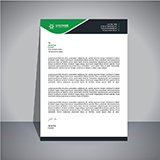Most state courts hold that an insured has at least a limited obligation to read an insurance application or policy that they are signing or buying. They cannot simply rely on what an insurance agent supposedly said. The insured might sue the agent when things go wrong, but that tactic did not work for a Tennessee couple.
The insured was an electrical work contractor owned by a father and son. The firm needed payment and performance bonds in order to work on a large commercial construction project in Jacksonville, Florida. The father worked with the company’s insurance agent to obtain the bonds.
The surety required the father, his wife and the son to sign a General Agreement of Indemnity. Among other things, the agreement put the couple’s personal assets up as security for the bonds. These included “all of their furniture, fixtures, equipment, office equipment, books and records, documents, accounts, deposit accounts, investment property, … real property …” The last paragraph stated that all parties to the agreement had read and understood it.
According to the father, he and his son met with the agent to sign the papers. With the agent present, he called his wife to ask if he could sign on her behalf. This is how the appellate court’s opinion reported what happened next:
“Mr. King (the father) testified that Ms. King said, ‘Garry I don’t care what you sign as long as we’re not putting up our personal stuff, I don’t care.’ Mr. King then asked Mr. Bradley (the agent), ‘Are you sure we’re not putting up our stuff?’ Mr. Bradley responded, “Nope. Just [the business].’” The agent later disputed this version of events.
Based on this, the insured signed the indemnity agreement. When the insured was unable to complete its work on the project, the surety paid off the bond and began seizing possession of the couple’s various properties. The opinion does not state the value of the bond, but it was large enough that the couple could not secure it with cash and other liquid assets.
The wife subsequently sued the insurance agent for negligent misrepresentation of the indemnity agreement and negligence in obtaining the bonds. The agency asked the court to rule in its favor based on undisputed facts and the law.
The trial court did rule in the agency’s favor, finding that it was unreasonable for the couple to rely on alleged statements by the agent when the text of the agreement was right in front of the insured for him to read. When she gave her husband permission to sign on her behalf, the wife made her husband her agent. This meant that she was presumed to know everything he knew, and he had the opportunity to read the agreement before signing.
She took the case to a Tennessee court of appeals, but they upheld the trial court’s ruling. “The unrefuted testimony is that Mr. King simply did not read the (indemnity agreement),” they wrote. “This is unfortunate, because ‘an individual who signs a contract is presumed to have read the contract and is bound by its contents.’”
It is unclear whether the insurance agent actually told the insured that the bond did not put his personal assets at risk. If he did, that was a serious error indicating that he was unfamiliar with the terms of the contract he was selling. If not, this suit could have been prevented from going as far as it did had he documented the significant terms in a letter or email to the insured. It is always helpful when an agent writes to an insured to point out significant exposures left uncovered by a policy or bond. The communication can be evidence valuable to defeating an errors and omissions liability claim.
Insurance agents can never know how their clients will remember events. Providing their own version of events in writing before a loss occurs can be an essential form of protection.
















